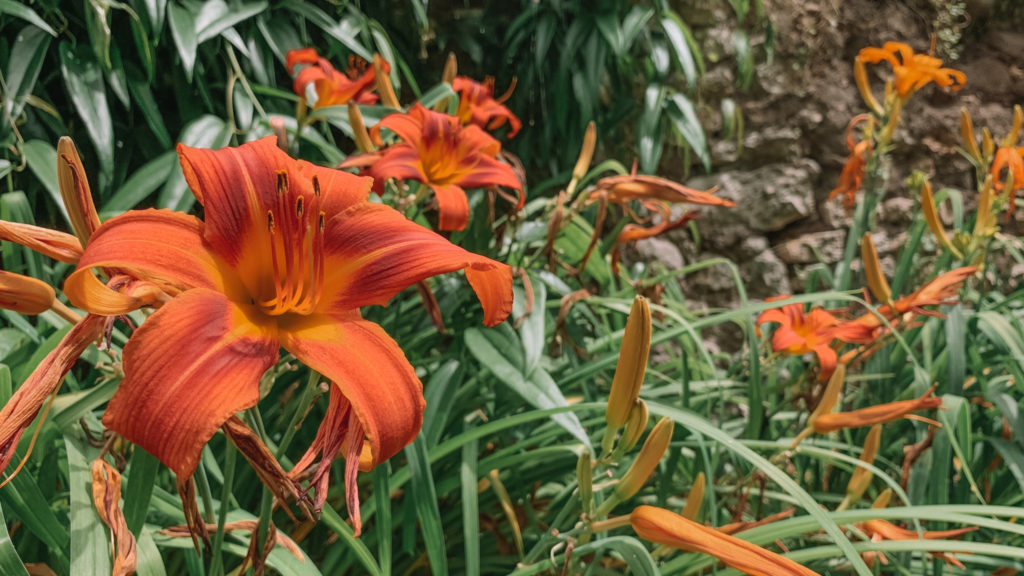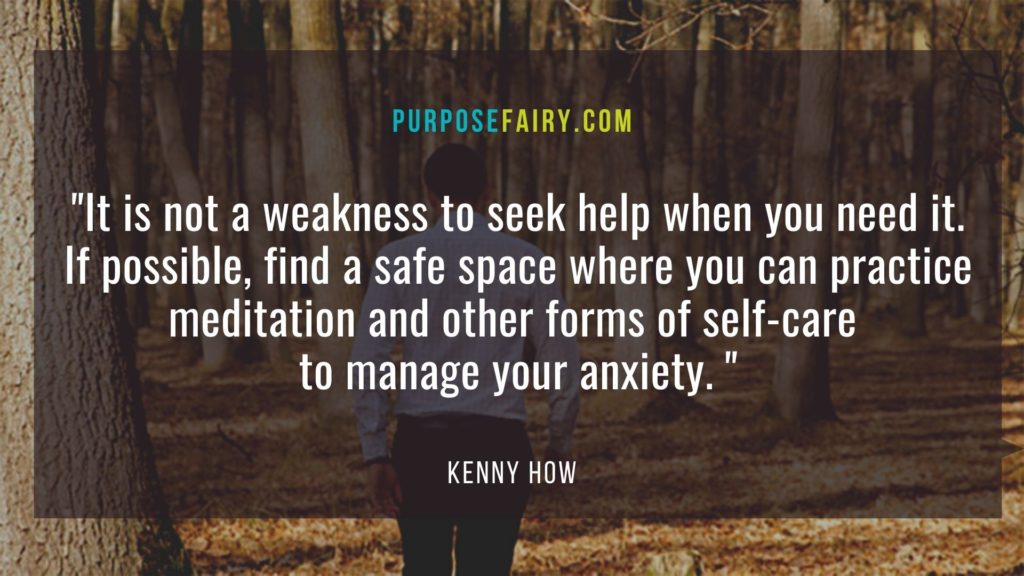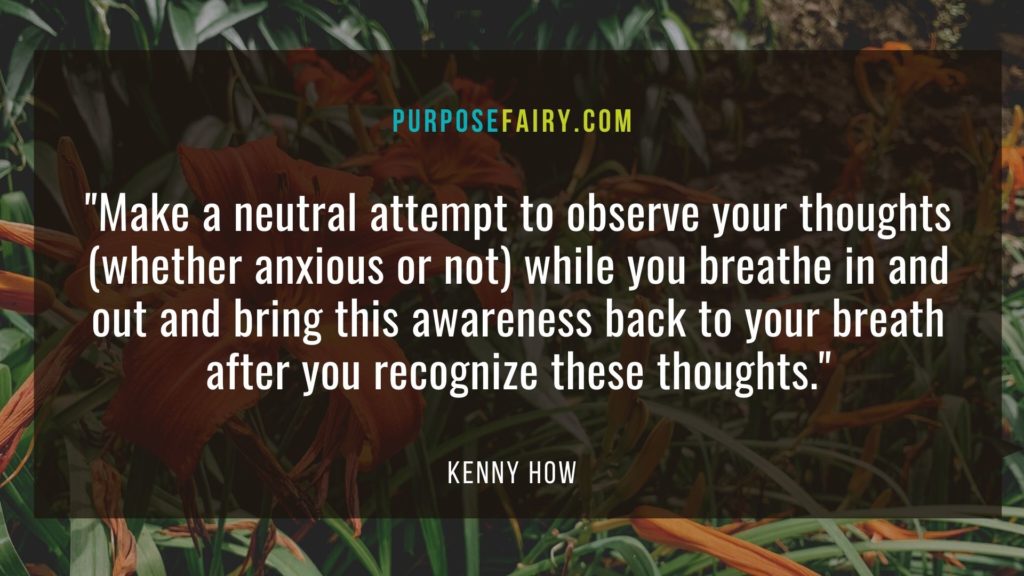
“Meditation is a process of lightening up, of trusting the basic goodness of what we have and who we are, and of realizing that any wisdom that exists, exists in what we already have.” ~ Pema Chodron
Feeling overwhelmed with anxiety?
Meditation can help lessen or relieve its symptoms. Speaking from a current sufferer for 2 years, mindfulness meditation can calm or soothe the state of mind.
Here is 6 tips on how to manage your anxiety with meditation so that its effects won’t impair your life…
6 Tips To Use Meditation for Dealing with Anxiety
1. Recognise Your Warning Signs And Triggers
Some days are good, others not so good.
Learn to spot your own warning signs that you are about to feel anxious. For me, prior to the times I feel anxious, I have difficulty concentrating on simple tasks and have very slow motor skills. I also may feel a sense of dread and being afraid. In addition, I have the urge to behave like a little boy: the impulse to scream and cry in fear.
Yes, I am aware of the masculine stereotype which is no man is supposed to cry. I can only seek your kind understanding as I share my vulnerability as a guy. In 2019 when my anxious symptoms started, it was so serious my parents had to accompany me to the psychiatric emergency hospital for doctor consultation for a few times in a month.
It is also wise to be aware of what causes you to feel your anxiety (i.e. your triggers). For me, my trigger tends to happen from 7pm to 10pm evening to night.
2. Inform Your Loved Ones Or People Who Care
Once you spotted your warning signs, tell or text your family, healthcare case manager or a friend who cares that you are not well. It is not a weakness to seek help when you need it. If possible, find a safe space where you can practice meditation and other forms of self-care to manage your anxiety.
For example, if you are driving, find a carpark where you can stop for a short while. Remember: your illness doesn’t define you. You are not weak despite your sickness.

3. Close Your Eyes and Take a Deep Breath
After you have found a safe spot to relax, sit upright with your feet flat on the ground and close your eyes. Inhale gently for 4 seconds. Hold your breath for another 4 seconds before gently releasing it through your nose or mouth.
Repeat this exercise for at least 5 minutes. When I first tried using this breathing exercise, it wasn’t natural for me. I was too used to my fast and shallow breaths. Despite this, I tried to stick to the practice. After a while, my body got used to the deep breaths and I managed to relax because that’s how powerful meditation is.
4. Imagine a Happy or Peaceful Place
While your eyes are closed, it may help for some of you to imagine a happy or peaceful place to be in. The place can be real or imagined.
For me, despite being a pessimist, my happy place is where I have my vacation in Malaysia: having a cheap but sumptuous hotel buffet and a relaxing swim before showering in the clean and well maintained washroom. Find something that makes you happy and relaxed and combat the effects of negative anxiety.
5. Observe Your Thoughts
Make a neutral attempt to observe your thoughts (whether anxious or not) while you breathe in and out. Bring this awareness back to your breath after you recognize these thoughts.

6. Open Your Eyes and Note How You Feel
After immersing yourself in a happy scene and doing deep breathing exercise for about 5 to 10 minutes, slowly open your eyes and take note of how you feel. Rating your feeling of well being from a scale of 1 to 10 (1 being extremely anxious, 10 being very relaxed).
Meditation is a truly powerful tool to use through this entire process.
It is also helpful to keep a logbook to journal when, where and what you do when you are having anxiety. For me, I have been journaling the instances where I have anxiety since the start of this year. On average, I have 5 anxiety attacks in a month and they usually happen from 7pm to 10pm.
If meditation is not effective as a tool to manage your anxiety, it is advisable to speak to a mental healthcare provider to seek professional advice or help. It may be helpful to show them your logbook to find common trigger points.
Comments
Kenny How
Kenny is a mental wellness advocate who is the founder of calmingmindfulness.com. As a sufferer of mental health conditions, he hopes to bring positivity and hope through his meditation website to a society full of pessimism and negativity due to uncertain times. He enjoys swimming and playing FPS video games on days when he is free.
read more